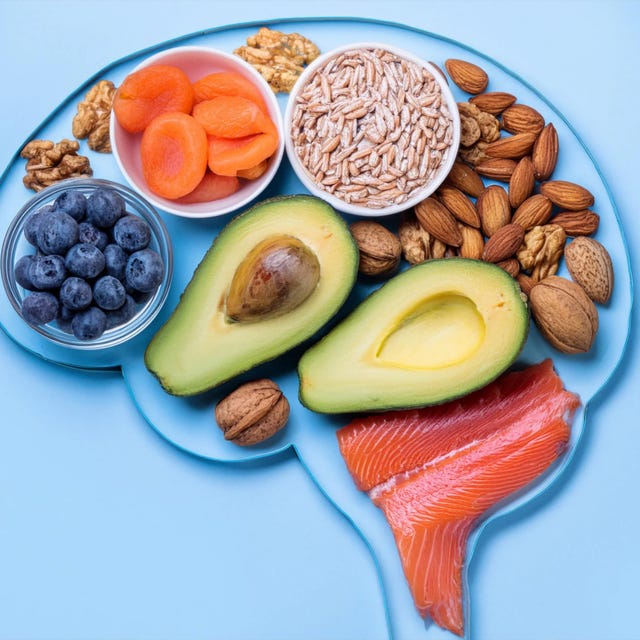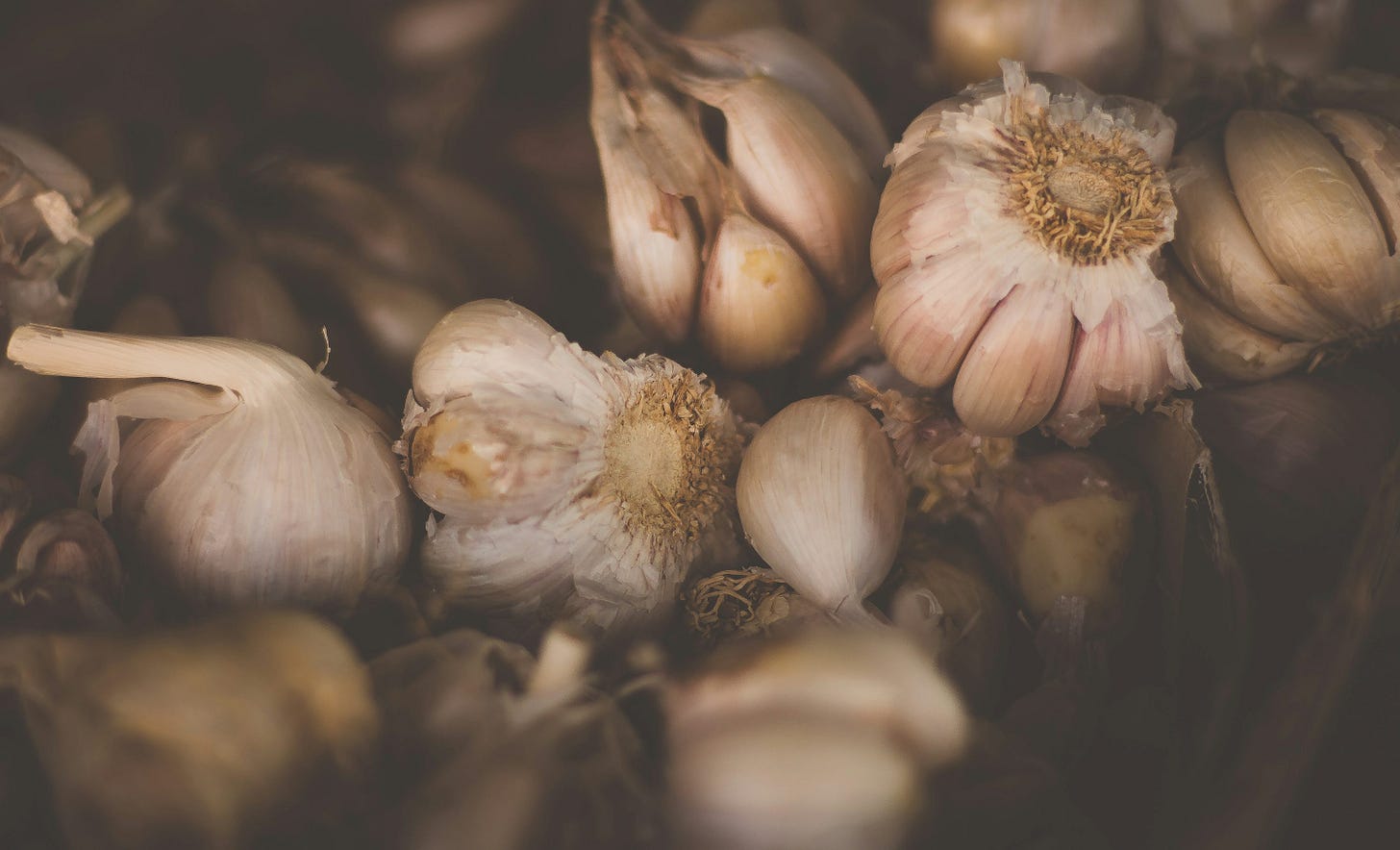The Surprising Gut-Brain Connection
How Your Stomach Affects Your Mood!
Hello, Health Enthusiasts!
I know it’s been a while since I last wrote to you.
We have a beautiful baby boy now, and it's been full of emotions and so much happening simultaneously. I am really glad to be back sharing top Nutrition tips with you, and of course, trust me to bring all the juicy gist of motherhood and nutrition childcare to you.
Without further ado, let us dive right in.
Did you know that what you eat can impact how you feel? Research is uncovering an extraordinary link between our gut health and mental well-being, showing that our stomachs and brains are more connected than we might think.
This connection, called the gut-brain axis, reveals how certain foods and gut health directly influence mood, stress levels, and cognitive function.
To understand this concept better, it would be important to explore some foods that can help keep both your stomach and mind happy!
What is the Gut-Brain Axis?
The gut-brain axis is a complex communication system between the gastrointestinal tract and the central nervous system. This connection isn’t just metaphorical; it’s a physical network made up of neurons, immune cells, and microbial interactions.
The gut has its network of neurons, known as the enteric nervous system (ENS), often called the "second brain." The ENS plays a vital role in sending signals to the brain, and it’s estimated that 90% of the body’s serotonin, ‘the feel-good’ neurotransmitter, is produced in the gut. That’s amazing!
How Gut Health Influences Mental Health
Microbiome and Mood
Trillions of microorganisms collectively called the gut microbiome are found in our Gut and these tiny organisms help digest food, produce vitamins, and most importantly, they play a crucial role in mood regulation. Short-chain fatty acids (SCFAs) that reduce inflammation are produced by certain bacteria and they help regulate neurotransmitters linked to mood and anxiety (Cryan et al., 2019).Stress and Digestion
Have you ever felt "butterflies" in your stomach when you’re nervous? This is a classic example of the gut-brain connection at work. Stress triggers the release of cortisol, which can disturb gut function, leading to digestive issues like bloating, indigestion, and even changes in appetite (Foster & Neufeld, 2013).Inflammation and the Immune Response
Did you know that chronic inflammation in the gut can also impact the brain, potentially contributing to depression and anxiety? Some foods that promote a healthy gut balance may help reduce inflammation and, in turn, support mental health (Rieder et al., 2017).
Top Foods to Support Both Gut and Mental Health
Eating the right foods can help nurture, and maintain a healthy gut and support a balanced mood. Here are some gut-friendly foods you can include in your diet:
Fermented Foods
Foods like yogurt, kimchi, locust bean are rich in probiotics, which introduce beneficial bacteria to the gut, aiding digestion and potentially reducing symptoms of depression and anxiety (Sarkar et al., 2016).Fiber-Rich Foods
Whole grains, legumes, fruits, and vegetables are excellent sources of fiber. Fiber feeds the beneficial bacteria in your gut, encouraging the production of Short chain fatty acids (SCFAs) that support mood stability (Rogers et al., 2016).Omega-3 Fatty Acids
These can be found in fish like salmon, mackerel, and walnuts, omega-3s have anti-inflammatory properties that benefit both gut and brain health. They support the gut microbiome and have been linked to a reduced risk of depression (Fond et al., 2015).Prebiotic Foods
Foods like bananas, onions, garlic, and asparagus contain prebiotics, a type of fiber that nourishes the beneficial bacteria already present in your gut. Prebiotics have been shown to reduce stress hormone levels, potentially easing anxiety (Schmidt et al., 2015).
Simple Ways to Improve Your Gut-Brain Health Daily
Practice Mindful Eating
Take time to eat slowly, savoring each bite. Chewing thoroughly helps your digestive system process food more efficiently and can reduce feelings of bloating.Limit Processed Foods
Processed foods often contain additives and preservatives that disrupt gut bacteria. Opt for whole, unprocessed foods whenever possible.Stay Hydrated
Water aids digestion by helping break down food and facilitating nutrient absorption. Try to drink at least 8 glasses of water daily to keep your gut functioning well.Reduce Stress with Relaxation Techniques
Activities like yoga, meditation, and deep breathing exercises can reduce cortisol levels, positively impacting your gut and overall mood (Murray et al., 2019).
Closing Thoughts
The gut-brain connection is a powerful reminder that health isn’t just about what we eat but how our bodies respond to it. By making simple dietary changes and understanding the gut’s role in our mental well-being, we can empower ourselves to feel healthier, happier, and more balanced.
References
Cryan, J. F., O’Riordan, K. J., Cowan, C. S., Sandhu, K. V., Bastiaanssen, T. F., Boehme, M., ... & Dinan, T. G. (2019). The microbiota-gut-brain axis. Physiological Reviews, 99(4), 1877-2013. https://doi.org/10.1152/physrev.00018.2018
Foster, J. A., & Neufeld, K. A. M. (2013). Gut–brain axis: how the microbiome influences anxiety and depression. Trends in Neurosciences, 36(5), 305-312. https://doi.org/10.1016/j.tins.2013.01.005
Fond, G., Macgregor, A., Leboyer, M., & Michalsen, A. (2015). Fasting in mood disorders: Neurobiology and effectiveness. Psychiatry Research, 228(3), 300-305. https://doi.org/10.1016/j.psychres.2015.04.002
Rieder, R., Wisniewski, P. J., Alderman, B. L., & Campbell, S. C. (2017). Microbes and mental health: A review. Brain, Behavior, and Immunity, 66, 9-17. https://doi.org/10.1016/j.bbi.2017.01.016
Rogers, G. B., Keating, D. J., Young, R. L., Wong, M. L., & Licinio, J. (2016). From gut dysbiosis to altered brain function and mental illness: mechanisms and pathways. Molecular Psychiatry, 21(6), 738-748. https://doi.org/10.1038/mp.2016.50
Schmidt, K., Cowen, P. J., Harmer, C. J., Tzortzis, G., Errington, S., & Burnet, P. W. (2015). Prebiotic intake reduces the waking cortisol response and alters emotional bias in healthy volunteers. Psychopharmacology, 232(10), 1793-1801. https://doi.org/10.1007/s00213-015-3790-2
IMAGE CREDIT: unsplash.com








